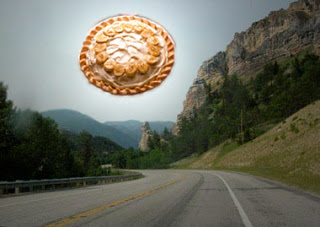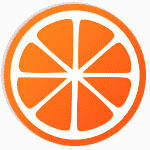Maybe it’s just the way the cookie crumbles but it seems so many of our food expressions involve unhealthy foods. Cake and pie are popular for idioms; I’ve even been known to use “have your cake and eat it too” in weight loss sessions with clients. Have you ever thought about the origin of these idioms? Maybe you should use your noodle.
I chose some of my favorite foods to focus on:
In a pickle– which means in a quandary always seemed like a strange expression to me. I love pickles and being inside a pickle doesn’t seem like any more of an issue as being in any other food. In a pickle refers to stewed vegetables that are mixed up in order to become pickled. There is also a Shakespearian reference to being in a pickle from the Tempest (trust me I didn’t know this until I looked it up). Alonso says “how camest thou in this pickle.” And then there’s the slang word “pickled”, anyone know what this means?
Salad Days– this expression refers to youth. When I think of my younger years, I would call them Hostess Days, Fluffanutter Days or if I’m being poetic Ravioli Days. If anything, salad days are when you get older and need to watch things more carefully. However, Cleopatra (in Antony and Cleopatra) said “My salad days When I was green in judgment.” Here green, as in inexperienced, refers to green shoots of spring versus something consumed in an effort to be healthy.
Salt of the earth– I love this expression and its connotations referring to people who are unpretentious, honest and good. There are many who trace this expression to biblical roots. An interesting explanation was that in the Moroccan city of Fez, the Jews, in the Jewish quarter, did much of the salt mining. They were considered very useful to the community and fostered this saying.
Eggs in one basket– Nothing beats a practical tip, I’m also fond of bigger fish to fry but thought I’d stay away from frying in favor of healthier foods. Eggs in one basket refers to when eggs were transported in baskets on wagons, if one basket fell off, presumably all the eggs in it would break. I like the idea of spreading risk but also appreciated Mark Twain’s alternative suggestion to “put all your eggs in one basket and watch the basket.”
Big Cheese/Cheesy– someone referred to as “the big cheese” is the opposite of salt of the earth. The big cheese is similar to what we commonly call “cheesy”. In culinary terms, nothing is more delicious than something cheesy but apart from food cheesy means something cliché’ or unimpressive. Even more unusual is that this term has its roots with the British in India coming from the Urdu word chiz meaning “thing”. So, do we have India to thank for cheese? That’s “bananas”
I hope you’re holidays aren’t “nutty as a fruitcake”, don’t “hit the sauce” and may you “bring home the bacon” in the New Year.
What’s your favorite food expression? Do you know what “pickled” means? Can you name 3 produce-centric idioms?


